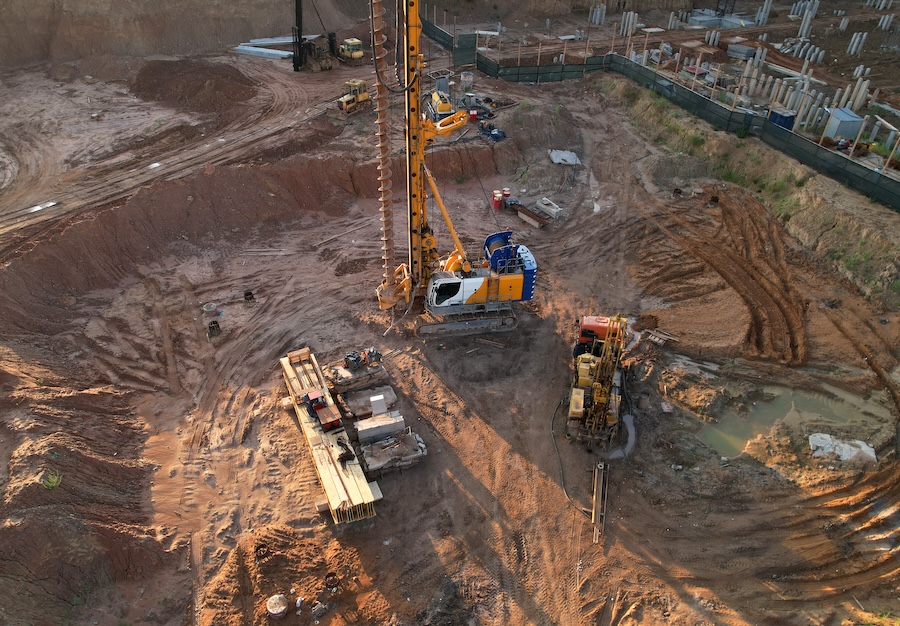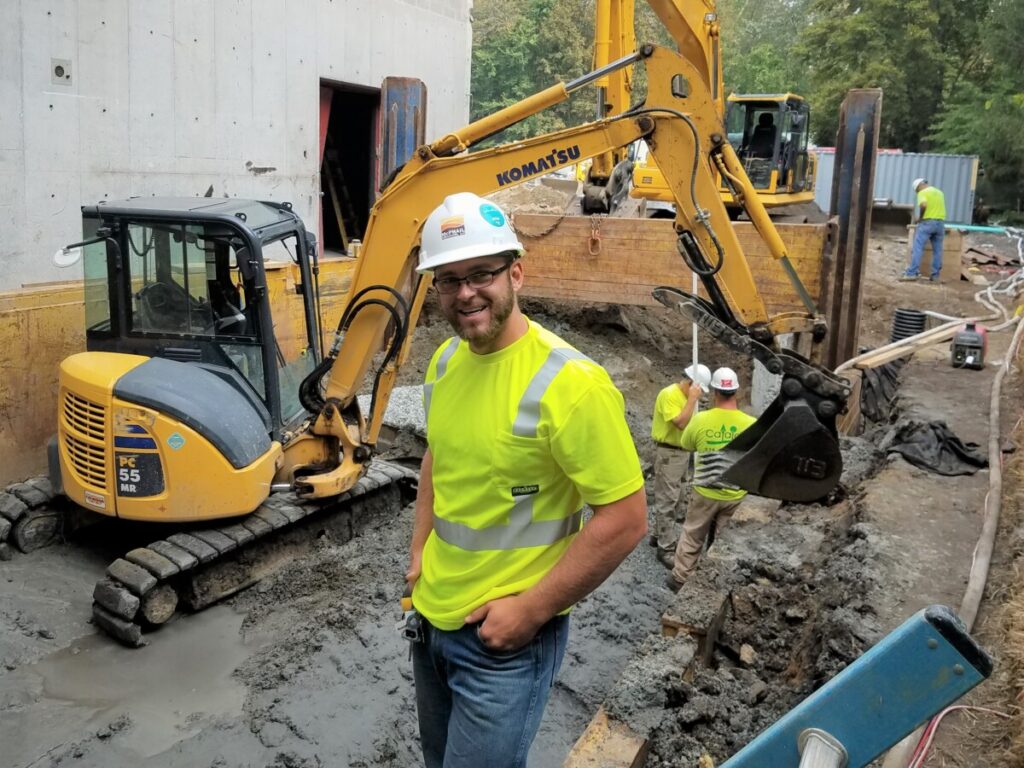Secret Skills Every Geo Tech Engineer Requirements for Efficient Website Analysis
Secret Skills Every Geo Tech Engineer Requirements for Efficient Website Analysis
Blog Article
Understanding the Vital Role of the Geotechnical Industry in Modern Building And Construction Projects and Infrastructure Growth
The geotechnical sector is a cornerstone of contemporary construction and infrastructure development, giving important understandings into soil behavior that directly affect project end results. Through innovative dirt evaluations and ingenious design remedies, geotechnical professionals not just ensure architectural stability yet also address sustainability worries amid developing environmental criteria.
Relevance of Soil Analysis
Soil assessment plays a vital role in the geotechnical industry, offering as the foundation for informed decision-making in construction projects. Accurate dirt examination is crucial for figuring out the viability of a site for numerous kinds of structures, consisting of residential homes, commercial buildings, and bridges. By examining dirt make-up, moisture, density, and stamina web content, designers can anticipate possible obstacles and reduce risks related to ground instability, erosion, and settlement.
The assessment procedure generally includes a series of examinations and observations that provide vital info concerning the subsurface conditions. This information educates the design and construction procedures, making sure that frameworks are constructed on strong ground with ample assistance. Understanding the soil profile allows engineers to pick ideal building techniques and products, enhancing source use and decreasing prices.
In enhancement to ensuring architectural stability, dirt analysis adds to environmental sustainability. By recognizing possible contamination or damaging effects on bordering communities, engineers can execute strategies to protect these all-natural resources. Overall, detailed soil analysis is essential in the geotechnical area, underpinning the safety and security, performance, and ecological obligation of construction tasks.
Trick Geotechnical Methods
A selection of essential geotechnical techniques are employed to analyze and improve the stability and efficiency of building and construction sites. One fundamental method is dirt tasting and testing, which allows engineers to determine the chemical and physical buildings of the ground. This information is important for making informed decisions pertaining to foundation layout and building and construction methods.
Another crucial strategy is site characterization, which includes the comprehensive evaluation of soil and rock problems with techniques such as borehole exploration and in-situ testing. Techniques like Requirement Penetration Examinations (SPT) and Cone Infiltration Tests (CPT) provide important data on dirt toughness and stratigraphy.
Ground renovation strategies, such as soil stablizing and grouting, are additionally essential in improving the load-bearing capability of weak dirts. These approaches can mitigate settlement and improve overall site conditions.
In addition, incline stability analysis is vital for recognizing potential landslide dangers and guaranteeing the security of excavations. This evaluation often employs numerical modeling and limit balance techniques to anticipate dirt habits under different conditions.
Integrating these geotechnical techniques into building and construction preparation not only optimizes project end results however also ensures the long-term sustainability of infrastructure growth.
Effect On Building Safety And Security

Moreover, reliable geotechnical engineering entails implementing reduction strategies for identified dangers. This might include soil stablizing strategies, keeping structures, or water drainage systems to minimize hydrostatic stress. By addressing these variables, building and construction groups can lower the likelihood of accidents and improve employee safety and security.
Furthermore, constant surveillance of site conditions is critical throughout construction. Geotechnical instruments can supply real-time information geo tech engineer regarding ground activity and stability, enabling for timely treatments when needed.
In significance, the geotechnical market plays a pivotal function in safeguarding construction tasks. By prioritizing ground integrity and employing extensive assessment methods, the geotechnical sector not only secures the labor force however likewise contributes to the longevity and dependability of constructed infrastructure.
Sustainability in Geotechnical Practices

In addition, geotechnical engineers are now using advanced technologies, such as geosynthetics, which improve dirt stability while decreasing the volume of product called for. This not only preserves sources but additionally leads to much less waste generation (consulting engineer). The assimilation of lasting layout principles right into geotechnical engineering encourages the usage of eco-friendly power resources in construction processes, better minimizing carbon exhausts
By performing these analyses, geotechnical professionals can establish approaches that mitigate damaging effects, ensuring conformity with ecological policies. On the whole, the emphasis on sustainability within geotechnical practices not just contributes to the durability and strength of infrastructure yet likewise promotes a liable method to land and resource monitoring.
Future Trends in Geotechnical Engineering
Innovation is driving the future of geotechnical engineering, as arising approaches and technologies reshape the sector. The combination of sophisticated data analytics and expert system is readied to change website examination and threat assessment, enabling engineers to make more educated choices based upon real-time data. Additionally, the use of geosynthetic materials is gaining traction, offering lasting services that improve dirt stability and decrease ecological effect.
Another significant pattern is the adoption of automated and robot systems for surveillance and building and construction procedures. These innovations not only boost accuracy however additionally improve security by minimizing human involvement in hazardous settings. Additionally, the execution of Structure Information Modeling (BIM) in geotechnical design assists in boosted collaboration among stakeholders, maximizing task delivery and minimizing costs.
As climate adjustment positions brand-new challenges, the industry is progressively concentrating on durability and versatility in layout techniques, making certain infrastructure can stand up to severe weather events. The ongoing pattern toward sustainability will certainly drive technology in eco-friendly products and techniques, lining up geotechnical design with broader environmental goals. Jointly, these patterns will form a much more effective, sustainable, and durable geotechnical landscape for future projects.
Verdict

The geotechnical sector is a cornerstone of modern construction and facilities growth, providing critical insights right into dirt behavior that directly affect job results. tailings engineer.Soil assessment plays a critical function in the geotechnical sector, offering as the structure for educated decision-making in building and construction jobs. On the whole, complete soil analysis is essential in the geotechnical area, underpinning the safety, effectiveness, and ecological duty of building and construction jobs
Building security is substantially affected by geotechnical practices, as the security and integrity of the ground directly impact the total safety and security of a building site.In verdict, the geotechnical market is essential in modern building and infrastructure development, providing essential analyses that make certain architectural integrity and security.
Report this page